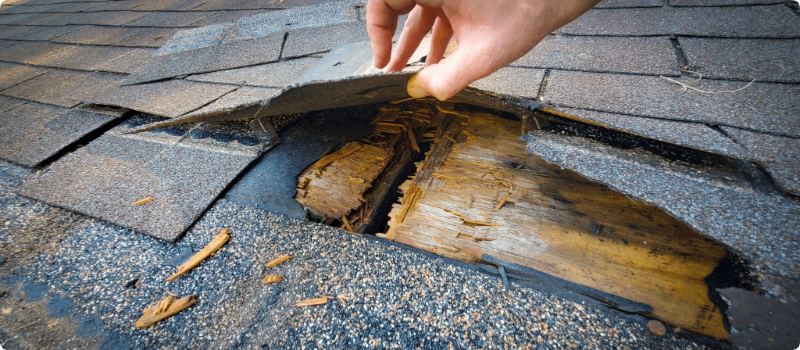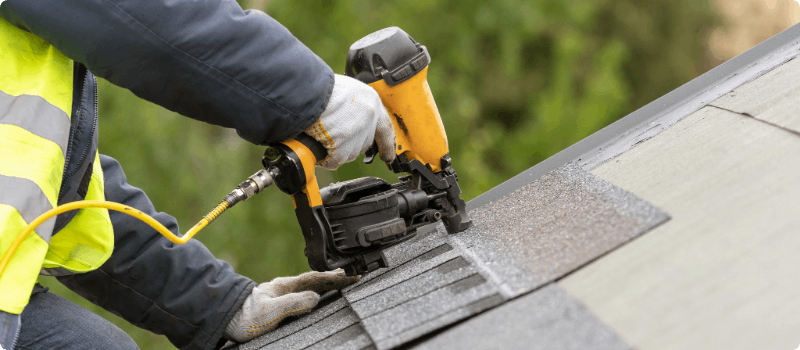What is a reasonable amount of time for landlords to make repairs?
Updated September 2, 2021 . AmFam Team
You may recall a term in your lease agreement, “A reasonable amount of time for landlords to make repairs.” But what does it mean? The answer varies on the gravity of the situation. We’ve put together a list of important tips that will help you understand and triage tenant repair requests so you’ll know how long you’ve got to fix the problem.

Issues requiring immediate or rapid response
Refer to state laws and local codes that may mandate landlord response times in your area. Responding to issues promptly is important because it may pertain to the safety and security of the rental. Concerns about appliances and the overall condition of the unit may also merit such an answer. The following issues may require a rapid landlord response:
General safety is threatened. The landlord is obligated to observe health codes and building codes — and abide by state and local rules that govern them. They’re also responsible for ensuring the building and rental unit is secure and lockable. Furnace exhaust lines need to be properly vented. Carbon monoxide detectors and smoke alarms should likewise be installed and in proper working order. State and local building codes need to be observed here, specifically.

Critical items are not operational. Maintenance of HVAC, plumbing and other vital systems are typically the landlord’s responsibility. When an issue occurs with one of these critical items, and they fail to work correctly, the landlord may be required to take prompt action.
There’s a decreased “warranty of habitability.” When problems arise with the life-supporting systems of the building or housing, it may be time to act fast as well. The property must have heat during certain months, running hot and cold water and be structurally sound with a roof that keeps the elements out and keeps tenants safe. These items should be in good working order, operating safely and following uniform commercial, state and local housing codes. When they're not, landlords must respond quickly to fix the issue.

There’s damage to the exterior of the rental property. Suppose some kids are playing nearby, and a ball goes through your window. Your landlord will usually take responsibility for funding the repairs, as these issues typically fall under the landlord's insurance policy covering the place. Because the elements can potentially infiltrate the broken window, fast repairs can save your unit from water damage or other problems.

Determining response timelines
These steps may help you understand how critical your tenant's problems are. If it’s not that urgent, you’ve typically got more time to deal with problems, usually around 30 days. Either way, keep the communication lines open and work to resolve the dilemma at your earliest convenience — your tenants will appreciate it. Here are some tips to help you manage repair requests:

Triage the situation quickly. Part of your job as a landlord is to get to the root cause of an issue quickly because sometimes, one small problem can spawn other big ones. Get onsite when possible or ask the tenant to send photos or a video to assess the situation. When feasible, get permission to enter the property, but know that if an emergency is imminent, you may be able to enter the property to attend to problems. Refer to your lease agreement for specifics.
Make a plan. After determining the extent of the damage or complexity of the problem, communicate your repair plan and timelines with your tenant. Ensure they know you're estimating, and you’ll keep them updated until the issue is solved.

Stay in touch. Provide your tenant with frequent updates. Consistent communication keeps them in the loop and shows them you’re actively working on the issue. If the problem is your responsibility, tell the tenant that you’re covering the expenses. Remember to follow up via email or text so there’s a written record clearly indicating that you’ve attended to the tenant’s needs in a timely manner. It’s also helpful to reinforce that you're honoring your rental agreement — and that their security deposit is safe.

Failing to respond in a timely fashion
Tenants may have the right to take action if critical issues, such as code violations, are not fixed promptly. Certain states and municipalities allow tenants to make repairs themselves and then charge the landlord for expenses they paid out-of-pocket to resolve the issue. Other provisions in the law offer tenants the right to deduct the amount of the repair from the rent, given that they’d contacted the landlord and no action was taken.

Making repairs quickly and efficiently can be challenging. Sometimes, the unexpected happens — surprising even the most seasoned property managers. To better protect your investment and your business from losses, contact your American Family Insurance agent and request an insurance review to ensure you’ve got the protection you need.
This article is for informational purposes only and based on information that is widely available. We do not make any guarantees or promise any results based on this information. This information does not, and is not intended to, constitute legal advice. You should contact a professional for advice specific to your situation.
Tools & Resources
NextScripts
JSS component is missing React implementation. See the developer console for more information.

